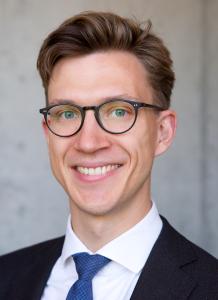KAS Scholars about their expectations of Germany's Indo Pacific Policy
With its policy guidelines for the Indo-Pacific, the German federal government lays down its commitment to engage with the world’s most dynamic region and to shape the narrative surrounding it. Germany’s Indo Pacific partners will keep a close eye on the tangible progress it makes in the seven key areas defined by the guidelines: multilateralism, climate change, security, rule of law, free trade, digitalization and education. But what have KAS scholarship holders from the region to say?
The Konrad-Adenauer-Stiftung is committed to supporting the German government in stepping up its activities in the Indo-Pacific. The KAS scholars put forth the following recommendations for better engagement with the Indo-Pacific in the course of the seminar:
Security policy
- Need for increased partnerships with regional powers, underpinning the values of multilateralism, rule of law, liberalism, democracy, equitable rights among others.
- Close partnership and collaboration of Germany and the EU with Japan, India, Australia towards a prospective expansion of the QUAD security and regional framework, underpinning democracy as the common bond between member countries.
- Need for strengthening Germany’s role in areas of security cooperation, mediator for regional conflicts.
- Dispensation of reliable information and maintaining data security as a crucial factor of stability in the region.
- In navigating a current and a post-pandemic world, vaccine diplomacy stands out as a sensitive foreign policy field in which Germany and the EU, along with their partners, should aim for a health-oriented global approach.
Economy and trade
- Diversification of trade partners in the region, taking cognizance of the issue of a shift in supply chain networks.
- Network or collaborate more closely with innovation projects in the Indo-Pacific region, especially in the medical sector (e.g.: Indo-German Science and Technology Centre, New Delhi).
- Join efforts in building climate-resilient infrastructure.
- Integrated education approach including artificial intelligence and digital innovation and facilitating knowledge transfers.
- Work towards an EU-ASEAN Free Trade Agreement.
Culture and religion
- Stronger collaboration with universities and academic bodies, e.g.: DAAD, MPI, Goethe-Institut, PASCH cooperation, Chin- Kobe.
- Invest in cultural programmes to increase Germany’s popular visibility and foster grassroots engagement: Food tourism, spices, spirituality (Yoga and meditation), films and theatre.
- Take a more sincere and pragmatic approach to cultural exchange as a vital means of engagement and platform for understanding.
- Strengthening ties between the EU and ASEAN academics, draw on specialised expertise to build development and cooperation in urgent fields.
Climate and energy
- Protection and favouring sustainable and ecological solutions with a stronger focus on collaboration with indigenous communities.
- Active collaboration between international actors/organisations, different governance systems and grassroots organisations.
- Coordinated responses to the high demand for energy-efficient and climate friendly policies and prerogatives (e.g.: collaboration in terms of International Solar Alliance; Transborder hydro-systems and hydro-power sharing.
- Engagement and cooperation in disaster management, risk reduction and resilience for managing environmental issues.
- Providing urban amenities in rural areas to liberate urban space congestion, pollution and other environment-related issues.
- Building infrastructure and investment in green energy and sustainable solutions.
- Help formulate and sustain a uniform EU narrative or stake in the region for meeting the challenges concerning environment sustainability.
Topics
About this series
The Konrad-Adenauer-Stiftung, its educational institutions, centres and foreign offices, offer several thousand events on various subjects each year. We provide up to date and exclusive reports on selected conferences, events and symposia at www.kas.de. In addition to a summary of the contents, you can also find additional material such as pictures, speeches, videos or audio clips.



